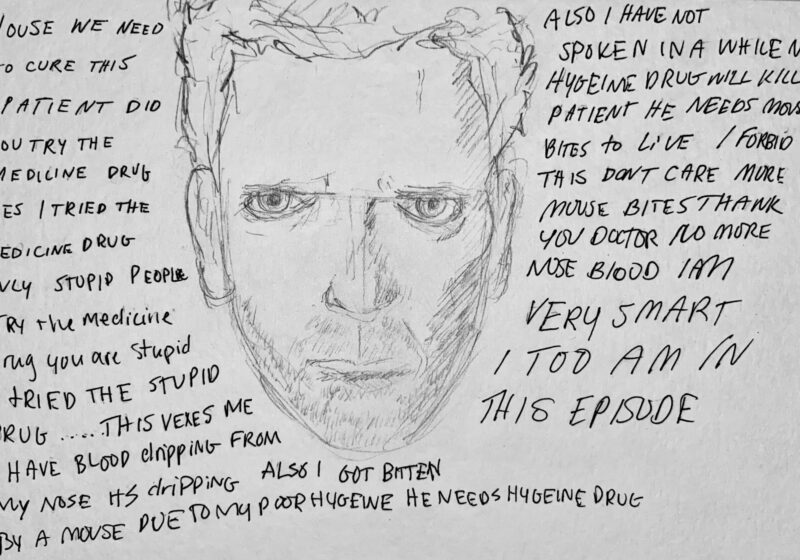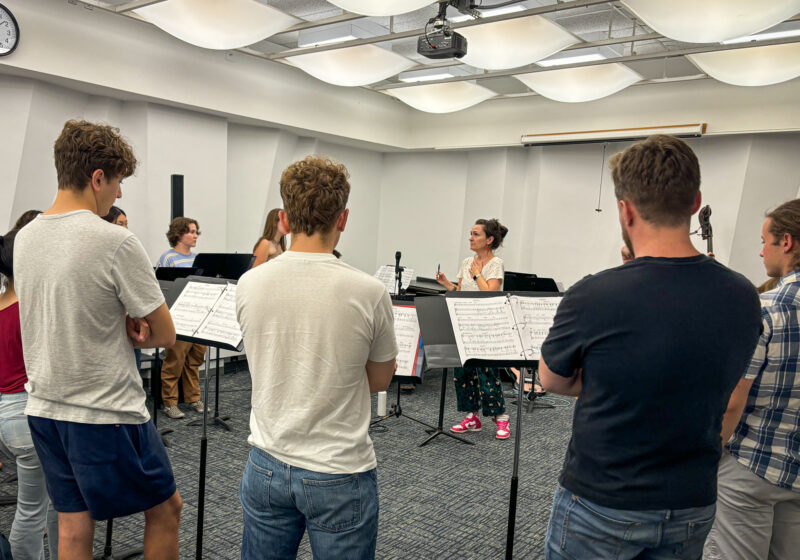No, we’re not watching Lincoln-Douglas. That much should be apparent by now, whether you’re a Republican watching the Democrats’ debates, a Democrat watching the Republican debates or a Green Party holdover skimming channels. The debates, as they currently stand, are the debates that Kafka would’ve written. Questions have no bearing on answers, candidates speak in the third person, everyone talks about how the debates are structured and conducted unfairly and the first thing a viewer needs to do after the debates end is fact-check. Who knows what’s true, half-true or true in one context but not in another? It’s a bizarre viewing experience, made all the more bizarre by the coverage. Immediately after the debate, political experts and insiders will share their take on whom they believe won the whole thing, though the criterion for what exactly constitutes winning a shouting match remains a mystery to most.
Lincoln and Douglas’ debates are the go-to example for great discourse in this country for a reason. On the campaign trail in 1858, Lincoln would reportedly heckle Douglas at Douglas’ own stump speeches. Eventually, the two decided a more formal setting would be beneficial, and they would debate for hours and hours, picking apart the issues (one at a time) that were tearing the country apart. Douglas would eventually win reelection, but the debates remained legendary, perhaps because they didn’t require a moderator.
There were a few primary debates in the first half of the 20th century. In 1948, Republican primary candidates Thomas Dewey and Harold Stassen debated on the radio, discussing the Communist Party’s legal standing in an event that some credit with Dewey’s eventual capture of the nomination. Rather than individual questions being fired at them, they each had about twenty minutes to speak, followed by an eight-minute rebuttal. Forty million people tuned in, laying the groundwork for what was to follow.
The modern debate paradigm was established in 1960. John F. Kennedy and Richard Nixon participated in the first televised debates, and the questions jumped from topic to topic, rather than sticking to a single issue. The now-famous story goes that simply seeing Kennedy (tanned, confident, poised) contrasted with Nixon (who looked like he was coming off of a two-week bender) was enough to sway voters toward Jack, but it was more than that. Kennedy’s ability to clearly and confidently distill complex ideas into easily digestible sound bites far surpassed that of Nixon’s, and as the debate jumped from topic to topic, you could actually see Nixon physically fold. About 70 million people in a country of 180 million watched that debate on television.
The format became standard by 1976, and, in large part, debates stayed the same until about 2007. If you watch these on YouTube, you’ll find that though they’re still largely made up of platitudes and posturing and little zingers, they’re generally respectful. The questions are relevant and respectful as well, and the debates tend to run pretty smoothly. In truth, they’re not great debates, but they do have some measure of depth. It’s mildly interesting, but in truth, it’s rarely great television. Consequently, viewer numbers declined.
Something happened in 2007. I don’t know what it was or who kicked it off, but the tone shifted. Go back and watch these debates, and you’ll find that they’re much more similar to the orgy of ineptitude and hot air that exists today. People start to cut each other off; they ignore the moderators, insult the other candidates on stage and pander to the crowd even more. The questions seem to want to elicit a negative response, and everyone on stage seems eager to provide that response.
The 2012 election cycle and the one that’s currently under way have taken it to the next level. The candidates scream meaningless platitudes over each other, competing to see who can posture themselves as most for the people and most loyal to the party. The moderators and candidates hurl insults at each other, playing to the crowd and going for laughs. It’s not a debate. It’s an Internet comment section on stage. Ratings are higher than they’ve been in decades.
So, please, the next time you’re watching a debate, do your best to wade your way through the tidal wave of bullshit. Don’t be seduced by clever zingers, don’t worry about who answers more quickly and more confidently and remember that if someone’s yelling, they’re probably not worth listening to.
Bernstein is a member of the class of 2018.





